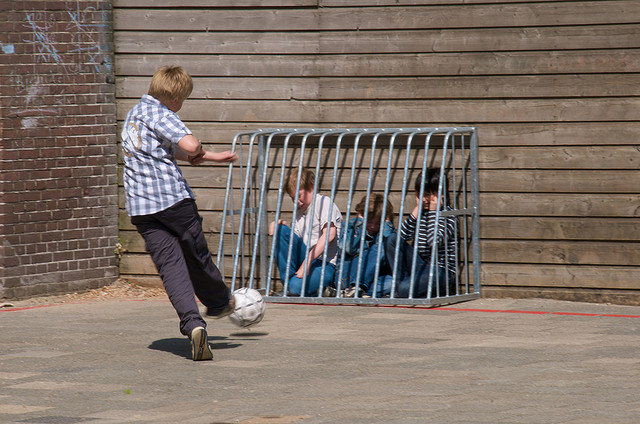When a life changing event rocks a family, children can be the hardest hit.
They can become angry, confused, and may start to take their frustration out on others – maybe you, or maybe their peers.
Regardless, the knowledge that your child is a bully is difficult to accept.
Especially when you have seen no sign of aggressive or threatening behaviour, your first reaction may be to disbelieve the revelation. However, it is important to keep in mind that kids can have two sides – one at school and one at home.
Rather than reacting defensively, approach the news that your child is a bully with an open mind and a commitment to rectifying their behaviour before it gets out of hand.
Communicate
The first step when your child is a bully is to try to understand their actions. Speak to your child about what drove them to treat others disrespectfully. Did they feel they were acting in self-defence? Were they following along with a friend? Did they see the other child as an easy target? Do they have any problems with anger or self-esteem? Were they acting out to get attention?
Be aware that in your conversation you are only privy to one side of the story. When kids are caught doing something wrong, many will try to shift the blame in order to escape punishment. Nonetheless, it is important to listen to your child and see if there is anywhere that you can help, or any issues that need to be investigated further.
Make your child take responsibility for bullying
Regardless of whether your child was provoked into bullying once or is a serial offender, it is vital that they acknowledge their actions as wrong. Ensure that your child takes ownership of their bullying and understands that treating people aggressively is unacceptable. Doing so is the first step toward changing bad behaviour into good habits.
Establish your expectations and relevant consequences
Lay down the law when your child is a bully and spell out exactly how they are to treat others. Let them know that bullying is never, ever, okay and that you expect their actions to reflect this. To reinforce your message, establish some concrete consequences for bullying and follow through on the promises of punishment if they bully again.
Make sure that these punishments have a real impact on your child. Simply sending them to their room where all of their technology and games are will do nothing to rectify their behaviour. Instead, consider cutting off certain privileges, making them volunteer on the weekend or even arranging a meet-up with the victim so that your child can apologise. Whatever it is, the punishment must be one your child wants to avoid.
Praise good behaviour
If your child gets a good grade for their behaviour or receives positive feedback from their teacher, acknowledge their efforts by conveying your pride in them and giving them a reward. Just as kids need boundaries and consequences for doing the wrong thing, they also need to see the positives associated with doing the right thing.
Promote compassion and understanding
Bullies often fail to comprehend the extent to which their actions impact those they target. Speaking to your child about how the same actions committed against them would make them feel is one way to make them understand that their behaviour has to stop. To teach your child to put themselves in another’s shoes you could try a role play exercise where you demonstrate the power of the language and/or aggression they are using. During this exercise you could also act out alternate ways to deal with certain situations to not only help them understand compassion, but also how to put it into action.
Consider the example you are setting
When a child is a bully, they often model the behaviour of significant people in their lives – and one of these significant people is you. Think about the example that you set for your child in your household. Do you, your partner or another child ever use demeaning language or threats of violence to manipulate others? Is your child exposed to a perspective that condones hostility toward people who are different? If so, some major changes are in order. No matter how much you talk about the importance of respecting others with your child, your actions ultimately speak louder than words.
Need more information?
Bullying. No Way! should be your first point of call if your child is a bully. The website was created in Australia and offers information and support related to bullying. The site is appropriate for all ages, and has separate sections for parents, young children, students and teachers.



